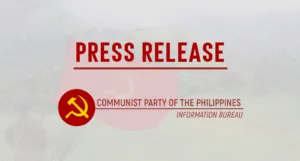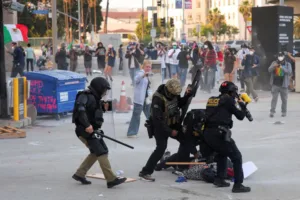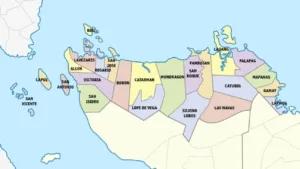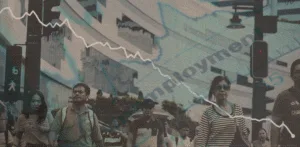PRESS RELEASE
20 June 2021
CPP Founding Chairman and ILPS Chair Emeritus Prof. Jose Ma. Sison launched his latest book “On the Philosophy of Marxism-Leninism-Maoism” in an online event today and livestreamed on Facebook and YouTube. The book, edited by Julieta de Lima, is second in a series of Sison’s Reader Series.
In brief remarks opening the event, Professor Sison explained that the over-all guide of the people’s democratic revolution in the Philippines is the universal revolutionary theory of the proletariat, Marxism-Leninism-Maoism. It is therefore necessary, he stressed, for those interested in this revolution to read and study the book that is now being launched.
“The class analysis of the history and current social circumstances, the basic problems of the people, the revolutionary forces in motion, the strategy and tactics and socialist direction of the ongoing revolution are most profoundly and comprehensively understood by studying the philosophy of Marxism-Leninism-Maoism,” Sison emphasized.Unity of theory and practice
This book is an outcome of more than four decades of conceptualizing and appropriating the universal theory of the proletariat, Marxism-Leninism-Maoism. As the author emphasizes in his preface, “In learning theory, proletarian revolutionaries give the highest importance to MLM philosophy. Having the materialist-scientific outlook and applying dialectical materialism facilitate the understanding of all matters and the solution of problems in the revolutionary process.” Thus stated first book reviewer Prof. Jerry Imbong – professor, core group member of the Philippine Ecumenical Peace Platform, and member of the Congress of Teachers and Educators for Nationalism and Democracy (CONTEND).
What weaves these philosophical essays together, and perhaps the greatest contribution of the work Imbong avers, come from its emphasis on the unity or fusion between theory and practice. Acknowledging the primacy of practice, the author asserts that philosophy’s role is to raise actually existing practices to the level of theory.
The book is a timely response to the increasing demonization and vilification of activists and revolutionaries in the country, he emphasized. “The series of malicious red-tagging and consequently the harassment, threats, and intimidations that accompany it calls for a more resolute and persistent political and ideological work in order to disseminate these marvelous ideas to the vast majority of the Filipino people and apply these in their everyday struggle for social liberation. After all, as Mao reminds us, social practice is the only criterion for truth,” Professor Imbong stated.
Timely
“This book could not be more timely,” stated second book reviewer Irina Malenko – translator, interpreter, a political activist in Russia and author of the novel “Sovietica” . “We live in the period of great changes, we can feel it every day in our own lives. Ka Joma stressed in his various works of the last few years that our time is the eve of the great revolutionary changes for the whole mankind, the time of the rising tide, and we should be well prepared for the tasks that we will have to complete, and it is our duty to acquire the necessary knowledge in order to defeat the decaying capitalist system and to build the better world. And I believe this book is one of the excellent instruments for us to achieve this knowledge that we need so badly in order to become able to do this,” Malenko stressed.
Socialism or barbarism
Former Faculty Regent of the University of the Philippines-Diliman and professor at the Center of International Studies at the UP Prof. Ramon Guillermo, who gave the third review of the book, argues that it is not a question but an imperative for humanity to struggle and triumph against the capitalist system in the 21st century and that, as in the past, the choice is still “socialism or barbarism”. “Imperialist countries hold enough weapons to blow the planet up several hundred times, insatiable corporations gobble up and destroy nature, while the majority of humanity has barely enough to eat and inadequate social services despite the unmeasurable wealth of a few,” he emphasized.
Dissecting the proletarian ethics and contributions of Jose Maria Sison to the philosophy of Maoism, Guillermo said the call to put in practice, enrich, and develop “proletarian ethics” or morality in the midst of current struggles, and even of “socialist morality” during the building of socialism in the future, is quite clear from JMS’s philosophical writings.
He said Mao Zedong’s essay “On the Proper Handling of Contradictions among the People” (1956) which embodies practical philosophy has a profound effect on the practice of the Maoists in the Philippines. As founding chair of the CPP, JMS agrees with Mao’s emphasis that in many instances non-antagonistic methods of resolving contradictions among the people such as discussion, reasoning, persuasion, and education may prevail. Social contradictions need to be properly handled to avoid mistakes and excesses, stressed Guillermo. JMS also underlined the need to learn from Stalin’s mistake of declaring the abolition of classes in the USSR in 1936 which led to errors in the method of handling antagonistic and non-antagonistic contradictions within Soviet society. It can be seen from the foregoing that the category of “non-antagonistic” contradiction is deeply involved in the formation of the proletarian ethic of how to deal with others, unite and struggle with them, in a class society,” Guillermo added.
In concluding his review Prof. Guillermo said that proletarian ethics, in JMS’s definition, draws rich lessons, both in terms of their successes and failures, from past revolutionary experiences in the former USSR, China, Vietnam, Indonesia, Cuba, and of other positive movements in the world.
During the open forum , Professor Sison was asked, among others: his top three books to recommend to young activists, his answers = Marx/Engels’ “Communist Manifesto”, Lenin’s “What is to be done”, Mao’s “On the Handling of Contradictions” and his top three philosophical slogans: “divide one into two”, “to rebel is justified”, and “dare to struggle, dare to win”.
Asked if “red political power” exists in the Philippines, Sison said: revolutionary people’s organs in the countryside constitute the new government of workers and peasants, and thus debunking the relentless mocking from the Duterte regime and its hacks that the revolutionary movement has not taken over Malacanang (the presidential palace) after years of struggle. Sison stressed that the Philippine revolutionary movement was able to withstand the collapse of revisionism because of its strong ideological foundation, and deep roots with the Filipino masses. In fact, he avers, the Philippine revolutionary movement is now number one in the world despite the strategic setback of the working class because of the capitalist crisis.
“The system is rotten and decomposing. Like the fascist Marcos, Duterte is the best recruiter for the revolutionary movement,” Sison underscored.
Questioned why some socialist countries have not adopted Maoism, Sison explained that essentially these countries have in practice adapted Maoist ideas and practices.
The two-hour book launch was highlighted in between discussions by impressive performances, from the opening poetry recitations of Nwel Saturay and Jen Brinkman who read the poems written by Marx, Mao and Langston Hughes’ writing on Lenin, the interpretative dance performed by the activist cultural group “Red Lelies” (Red Lillies) with music from Chilean activist Victor Jara’s “Rise up and look at the mountain” with piano accompaniment by 11-year-old Ilian Taguba, and the song “Busabos ng Puhunan” (Impoverished by Capital) performed by renowned Filipino folk singer and composer Danny Fabella.
“Gawaing masa, hindi gawaing mesa”
In closing, Bong Labog, chair of the militant labor center (Kilusang Mayo Uno, May First Movement) said what matters is how to apply MLM fundamentals in daily struggles. Reiterating that MLM is the workers’ theory, practice and life, Labog said activists, progressives, and revolutionaries should engage more in “gawaing masa hindi gawaing mesa” (mass work not armchair theorizing).
The event ended with a rousing video presentation highlighting the workers’ protests from around the world. The event was hosted by Prof. Sarah Raymundo and Chico Taguba.
Copies of the book “On the Philosophy of Marxism-Leninism-Maoism” are available online from Apple Books, Amazon, Barnes and Noble, and Kobo, and at the La Solidaridad and Popular Bookstores in Manila. #












